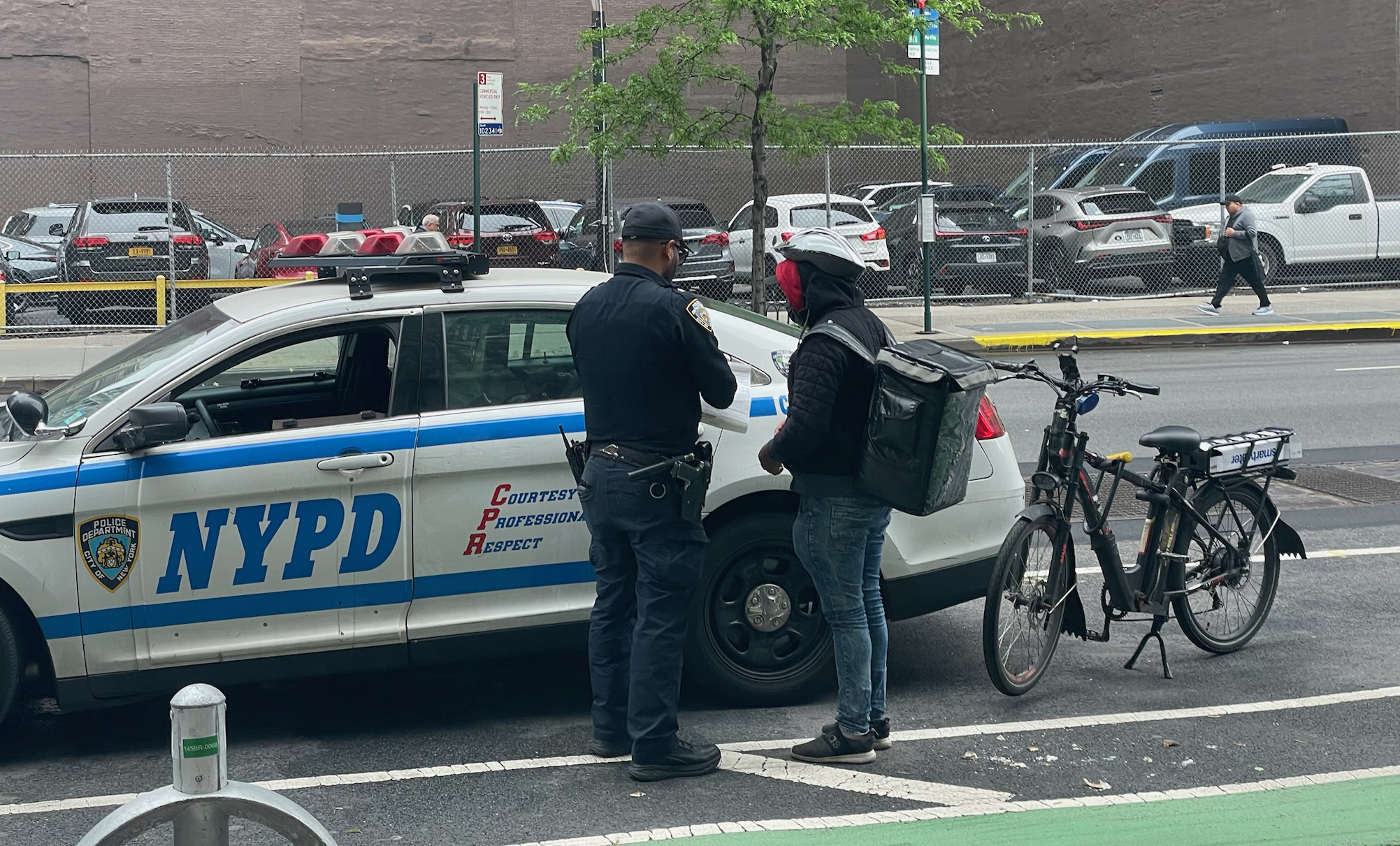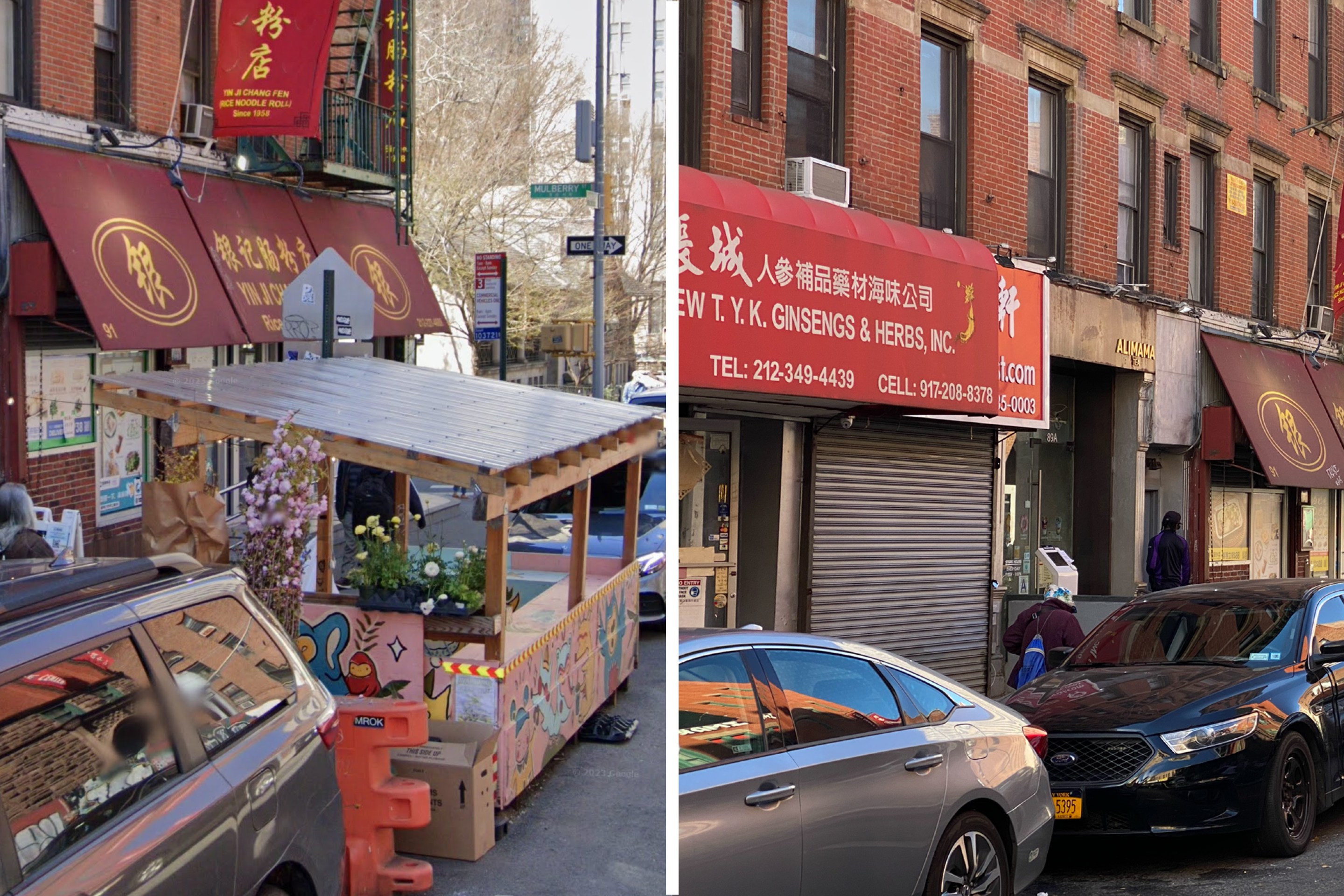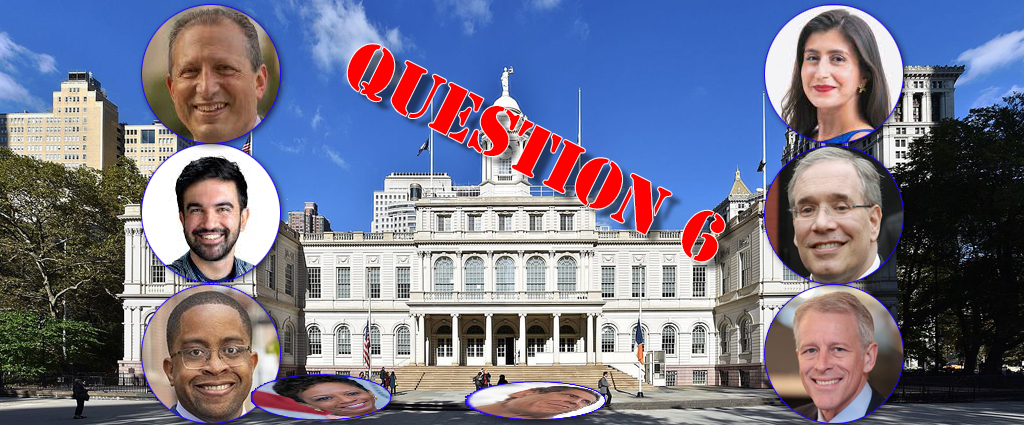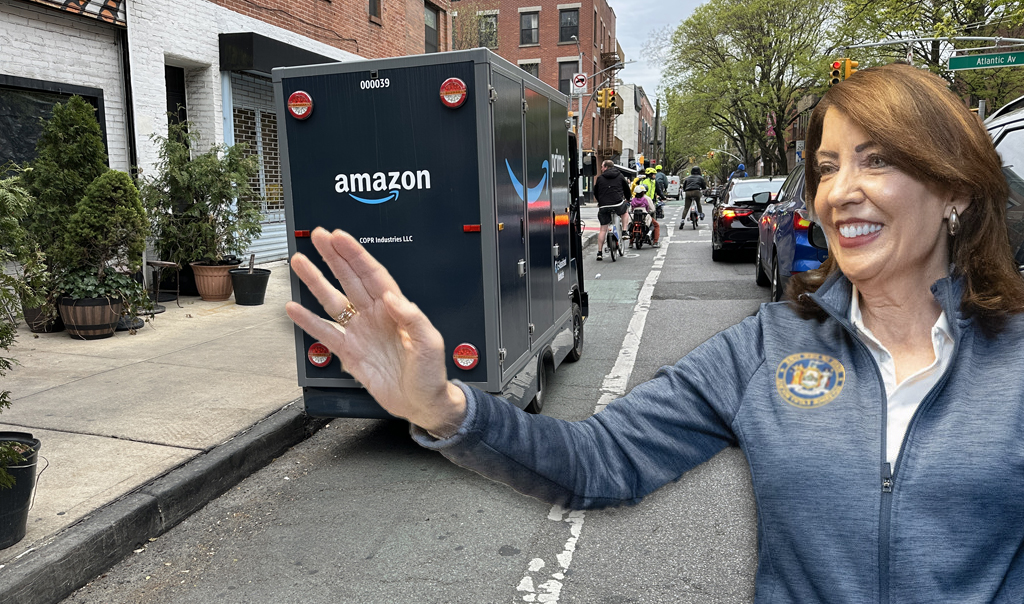
Who are bike improvements for? That can be a contentious question in cities where the implementation of bike infrastructure is associated with affluent white people. But as the above chart from Michael Andersen at People for Bikes shows, lower-income Americans are actually more likely than wealthy people to use a bike to get to work:
...bikes are disproportionately important tools for the lowest-income workers. The reasons are simple, and something any bike commuter would recognize: biking to work is cheap and, in a growing number of cities, convenient.
Still, in some cities, the provision of bike lanes does appear to overlook poorer neighborhoods. That's a basic issue of fairness and equity, though, not an indication that less affluent people don't benefit from safe conditions for biking.
Looking at state level data, in fact, it seems that attempts to make bike commuting more appealing have enticed rich and poor alike.

Andersen explains:
Thanks to its many bike-friendly cities, Oregon is an outlier, but the trend is clear: things that make bike commutes appeal to rich and middle-class workers also seem to make them appeal to poor workers.
The horizontal axis above shows the rate of bike commuting among workers who make more than $35,000 a year. The vertical axis shows the rate among workers who make less than $20,000.
The choices these two groups face are often different. Where a middle-class office worker might be choosing a bike commute instead of becoming a two-car household, a poor grocery worker might be choosing a bike commute instead of relying on bumming rides, walking -- or not even applying for jobs that aren't close to bus lines.
But as this chart shows, everyone in the economy faces choices. The work of cities is to help more people make the choices they and the people in their communities like. And when it comes to biking, there's not a lot of disagreement among poor, rich or middle class about what sort of biking people like.
Elsewhere on the Network today: Greater Greater Washington shares the smart way Chicago keeps its transit stations warm. Naked City reflects on the right and wrong ways to build an "auto mall." And Bike Delaware reports that Governor Jack Markell made safe biking a part of his state-of-the-state speech.




